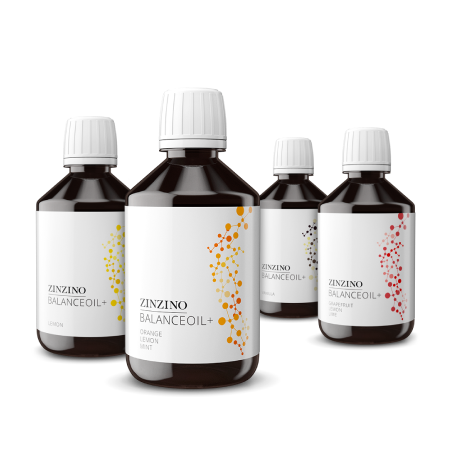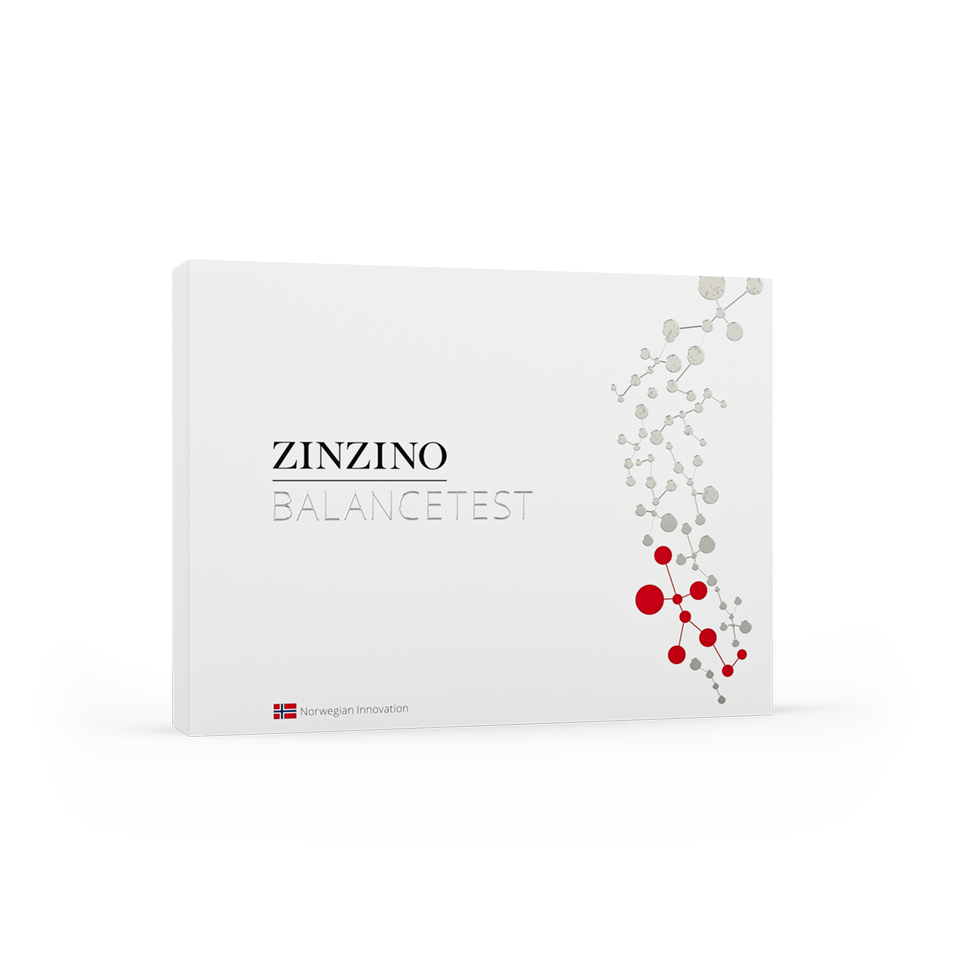Jan Arvid Dolve
Zinzino klient
Tere tulemast! Mul on tellitud toodetega olnud suurepäraseid kogemusi ja arvan, et need meeldivad ka teile. Andke mulle teada, mida neist arvate!
Polüfenoolide rikka ja oomegarasvhappeid tasakaalustava toidulisandi tervisele kasulikud toimed

Toitumise korrigeerimine pole alati meie esimene valik terviseprobleemidega tegelemiseks, aga tegelikult sõltub meie heaolu suuresti just sellest, mida me sööme. Ühed iseäranis olulised toitained füüsilise ja vaimse tervise toetamisel on oomega-3-rasvhapped.
Just, need asendamatud rasvhapped, mida leidub erinevates rasvastes kalades.
Inimkeha ei suuda neid asendamatuid rasvhappeid ise toota ja suurem osa inimestest ei tarbi neid piisavalt. Seetõttu vajame kahesuunalist lähenemist, mis hõlmab oomega-3-rasvhapete võtmist toidulisandi kujul, mis oleks samas rikastatud ka polüfenoolidega.
EPA ja & DHA oomega-3-rasvhapete tähtsus.
Euroopa Toiduohutusamet (EFSA) on kinnitanud terve hulga tervisealaseid väiteid oomega-3-rasvhapete, D-vitamiini ja oliiviõli kohta. DHA ja EPA on kaks olulist oomega-3-rasvhapet, mis kuuluvad ka BalanceOil+ koostisse.
Päevas 250 mg DHA tarbimine aitab säilitada normaalset ajutalitlust1 ja toetab silmanägemist2. Päevas 250 mg EPA ja DHA tarbimine toetab normaalset südametalitlust3. 3 g EPA-d ja DHA-d päevas aitab säilitada normaalset vererõhku4 ja 2 g päevas hoiab vere triglütseriidid normis5.
Lapseootel naiste puhul aitab 450 mg DHA-d päevas kaasa loote (ja rinnaga toidetavate imikute) aju normaalsele arengule1 ja 100 mg päevas aitab toetada normaalse nägemise arengut kuni 12-kuustel lastel2.
Südame-veresoonkonna tervise ja kognitiivsete funktsioonide, silmanägemise ja loote arengu toetamiseks on oomega-3-rasvhapped olulised kõikidele vanuserühmadele.
Meie BalanceOil+ toodetes kasutatavad EPA ja DHA oomega-3-rasvhapped pärinevad kõige usaldusväärsemast allikast, milleks on vabast loodusest püütud sardiinid, anšoovised ja makrellid. Kalaõlid läbivad tavapärase puhastamisprotsessi, aga neid ei töödelda ühelgi muul viisil.
Polüfenoolid ja oomega-3-rasvhapped.
Suure polüfenoolisisaldusega oliiviõli aitab oomega-3-rasvhapetel paremini imenduda. Oliiviõlides sisalduvad polüfenoolid on tugevad antioksüdandid, millel on mitmeid kasulikke omadusi. Näiteks kaitsevad polüfenoolid verelipiide oksüdatiivse stressi eest6.
Kindlasti tuleks valida toode, mis sisaldab esimese külmpressi oliiviõli. Kasutame oma toodetes eriti polüfenoolide rikkast oliivisordist Picual valmistatud õli, mille pressimiseks kasutame enne üldist saagikoristust nopitud oliive, et polüfenoolide hulka veelgi optimeerida. Esimene külmpress annab parima õli, mille koostisest pole midagi kaduma läinud.
Zinzino teadlased töötasid välja BalanceOil+, et kombineerida oomega-3-rasvhapped õige koguse oliiviõliga, mis sisaldab eriti rikkalikult oomega-9-rasvhappeid ja antioksüdante.
Polüfenoolide ja oomega-3 kombinatsioon võimaldab oomega-3-rasvhapete sisaldust organismis ohutult reguleerida ja hoida, et saavutada 120 päeva jooksul oomega-6- ja -3-rasvhapete vahekord, mis oleks väiksem kui 3:1.
D-vitamiin lisakomponendina.
Lisaks oomega-3-rasvhapete kasulikele omadustele toetab BalanceOilis sisalduv D-vitamiini kogus immuunsüsteemi normaalset funktsioneerimist7, lihaste talitlust8, luude struktuuri9, rakujagunemist10 ja vere kaltsiumsisaldust11. Kasutame looduslikku päritolu D-vitamiini, mis on saadud lammaste villas leiduvast rasvast ehk lanoliinist. See aktiveeritakse UV-valguse abil, mis on võrreldav inimese nahas toimuva D-vitamiini tootmise protsessiga.
BalanceOil+ on nii looduslähedane kui vähegi võimalik. See on kvaliteetne segu looduslikku päritolu õlidest, mis avaldab soodsat mõju kogu organismi tervisele ja aitab kaasa tasakaalu ja kooskõla saavutamisele. Tegu on omasuguste seas ainulaadse tootega.
Päeva saak.
Tervisliku oomega-3-rasvhapete sisalduse saavutamiseks tuleb paralleelselt rakendada kahte lähenemist: hea toitumine ja polüfenoole sisaldava oomega-3-rasvhapetega toidulisandi tarbimine. Võtke omaks Vahemere köök, kus leidub minimaalses koguses töödeldud toite, ning kasutage meie toodet BalanceOil+, et jõuda lähemale tervist toetavale rasvhapete vahekorrale, mis on 3:1 või madalam.
Kasutage organismi praeguse rasvhapete vahekorra tuvastamiseks Zinzino BalanceTesti ja seejärel tarvitage 120 päeva vältel Balance-sarja tooteid, et vastavaid näitajaid aegamööda parandada.
Oma sisemaailma tasakaalustamine pole kunagi olnud nii lihtne.
* USA Toidu- ja Ravimiamet (FDA) pole neile väidetele andnud oma hinnangut. Toode pole mõeldud haiguste diagnoosimiseks, ravimiseks või ennetamiseks.
1. DHA contributes to the maintenance of normal brain
DHA contributes to the maintenance of normal brain function. The claim may be used only for food which contains at least 40 mg of DHA per 100 g and per 100 kcal. In order to bear the claim, information shall be given to the consumer that the beneficial effect is obtained with a daily intake of 250 mg of DHA. Docosahexaenoic acid (DHA) maternal intake contributes to the normal brain development of the fetus and breastfed infants. Information shall be given to pregnant and lactating women that the beneficial effect is obtained with a daily intake of 200 mg of DHA in addition to the recommended daily intake of Omega-3 fatty acids for adults, i.e. 250 mg DHA and EPA. The claim may be used only for food which provides a daily intake of at least 200 mg DHA.
2. DHA contributes to the maintenance of normal vision
DHA contributes to the maintenance of normal vision. The claim may be used only for food which contains at least 40 mg of DHA per 100 g and per 100 kcal. In order to bear the claim, information shall be given to the consumer that the beneficial effect is obtained with a daily intake of 250 mg of DHA. Docosahexaenoic acid (DHA) intake contributes to the normal visual development of infants up to 12 months of age. Information shall be given to the consumer that the beneficial effect is obtained with a daily intake of 100 mg of DHA. When the claim is used on follow-on formula, the food shall contain at least 0.3% of the total fatty acids as DHA.
3. DHA and EPA contribute to the normal function of the heart
DHA and EPA contribute to the normal function of the heart. The claim may be used only for food which is at least a source of EPA and DHA as referred to in the claim SOURCE OF Omega-3 FATTY ACIDS as listed in the Annex to Regulation (EC) No 1924/2006. In order to bear the claim, information shall be given to the consumer that the beneficial effect is obtained with a daily intake of 250 mg of EPA and DHA.
4. DHA and EPA contribute to the maintenance of normal blood
DHA and EPA contribute to the maintenance of normal blood triglyceride levels. The claim may be used only for food which provides a daily intake of 2 g of EPA and DHA. In order to bear the claim, information shall be given to the consumer that the beneficial effect is obtained with a daily intake of 2 g of EPA and DHA. When the claim is used on food supplements and/or fortified foods, infor- mation shall also be given to consumers not to exceed a supplemental daily intake of 5 g of EPA and DHA combined. DHA contributes to the maintenance of normal blood triglyceride levels. The claim may be used only for food which provides a daily intake of 2 g of DHA and which contains DHA in combination with eicosapentaenoic acid (EPA). In order to bear the claim, information shall be given to the consumer that the beneficial effect is obtained with a daily intake of 2 g of DHA. When the claim is used on food supplements and/or fortified foods, information shall also be given to consumers not to exceed a supplemental daily intake of 5 g of EPA and DHA combined.
5. DHA and EPA contribute to the maintenance of normal blood pressure
DHA and EPA contribute to the maintenance of normal blood pressure. The claim may be used only for food which provides a daily intake of 3 g of EPA and DHA. In order to bear the claim, information shall be given to the consumer that the beneficial effect is obtained with a daily intake of 3 g of EPA and DHA. When the claim is used on food supplements and/or fortified foods, information shall also be given to consumers not to exceed a supplemental daily intake of 5 g of EPA and DHA combined.
6. Olive oil polyphenols
Olive oil polyphenols contribute to the protection of blood lipids from oxidative stress. Replacing saturated fats in the diet with unsaturated fats contributes to the maintenance of normal blood cholesterol levels. Oleic acid is an unsaturated fat. The claim may be used only for olive oil which contains at least 5 mg of hydroxytyrosol and its derivatives (e.g. oleuropein complex and tyrosol) per 20 g of olive oil. In order to bear the claim, information shall be given to the consumer that the beneficial effect is obtained with a daily intake of 20 g of olive oil.



Jagage seda lehte
Või kopeerige link